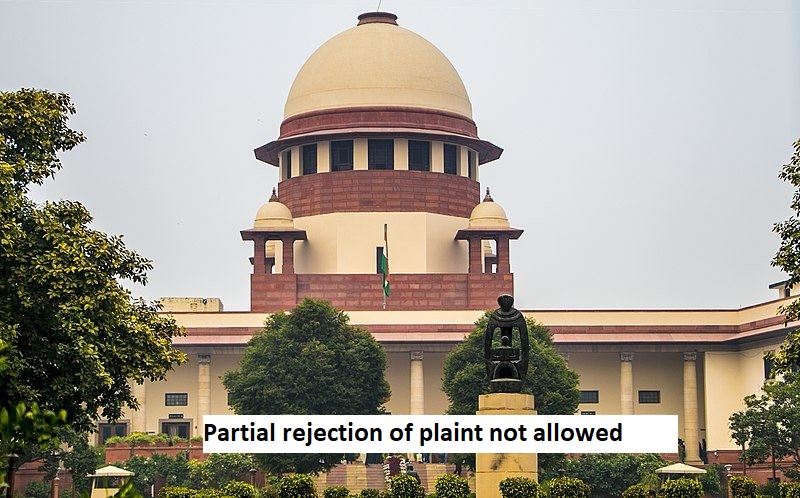


On October 31, 2023, the Supreme Court emphasized that a plaint cannot be partially rejected under Order VII Rule 11 of the Code of Civil Procedure, 1908. It reiterated that when a plaint fails to disclose a cause of action, it can be rejected under the same rule.
Justice PS Narasimha and Justice Sudhanshu Dhulia stated that the key criterion is to read the plaint in its entirety, assuming its truth. If the plaint reveals a cause of action, any application under Order VII Rule 11 of the CPC should be unsuccessful. Conversely, if it fails to establish a cause of action, the plaint should be rejected.
In the present case, the plaintiffs initiated a suit for partition and separate possession, while the defendants requested the rejection of the plaint under Order VII Rule 11 of the CPC. Plaintiffs and Defendants No. 1 to 3 were part of a joint family and held properties listed in Schedule A and B of the plaint.
The Trial Court rejected the application to dismiss the plaint, citing a lack of cause of action. Nevertheless, the High Court partially granted the application under Order VII Rule 11, CPC, and specifically rejected the portion of the Plaint related to the Schedule-A property mentioned in the plaint.
The High Court noted that the property listed in Schedule A of the plaint had been sold in 1919 through a registered Sale Deed, and the Plaintiffs did not dispute this fact. Furthermore, the High Court observed that the Plaintiffs failed to provide any evidence to contest the validity of the Sale Deed.
The Supreme Court determined that the Karnataka High Court had misapplied the established principles of Order VII Rule 11 of the CPC. Additionally, the Supreme Court found that the High Court's partial rejection of the plaint was inconsistent with the law. As a result, the Supreme Court allowed the appeal.
The Supreme Court noted that the High Court made a mistake by delving into the merits of the case and prematurely assessing the truth, legality, and validity of the sale deed.
In simple terms, the High Court erred in assuming the truth of the statements and prematurely concluding that the alleged prior property sale was final or had been executed. This approach is incorrect and runs counter to the firmly established principles when considering an application under Order VII Rule 11, CPC.
Therefore, the Supreme Court overturned the High Court's decision, rejected the application under Order VII Rule 11 of the CPC, and reinstated the suit, including the properties listed in Schedule A of the Plaint.
Based on the aforementioned principle, we confidently conclude that the High Court made a mistake by partially rejecting the plaint concerning the Schedule-A property and allowing the Plaintiffs to proceed only with respect to the Schedule-B property. Such an approach is not allowed when considering an application under Order VII Rule 11, CPC. Hence, we hereby overturn the High Court's judgment and order on this basis.
TAGS: Apex Court High Court error Order VII Rule 11 CPC partial rejection Schedule-A property Schedule-B property application impermissible judgment order.